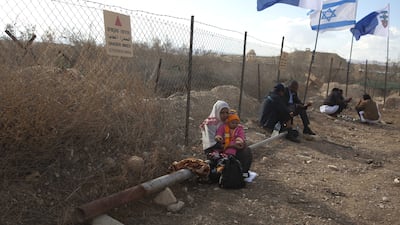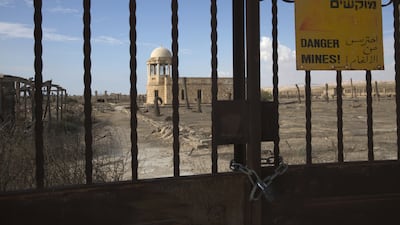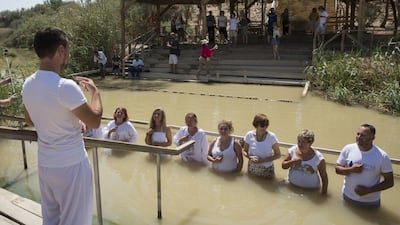The 1980-1988 Iran-Iraq War was so horrific that it has come to be known as the Middle East's First World War. The numbers speak for themselves. Some estimates put the number of casualties as high as 2 million people. But parallels with Europe between 1914 and 1918 do not stop at the number of deaths. It was also the modernised, indiscriminate nature of the killing, in which chemical weapons were used and deadly trench warfare dragged fighting and suffering on for eight years.
That war ended 34 years ago, but for the residents of Iraq's border regions it may feel unresolved. Dangers from the fighting still linger. None are more ubiquitous and terrifying than landmines. Today, Iraq is one of the most mined countries in the world. Whole areas of the country, both rural and urban, are cordoned-off because of the devices, which were prohibited under the Ottawa Treaty in 1997.
They are not just the result of conflicts that finished years before the ban. New minefields have also emerged after. The terrorist group ISIS planted them extensively in areas it occupied. One of the main reasons it has taken so long to begin reconstruction work in Mosul's historic Al Nouri mosque is the vast amount of explosive booby traps it planted in the vicinity.
In Yemen, the Houthis, another terrorist group, deploy mines indiscriminately, making the country one of the most mined in the world, alongside Iraq and Afghanistan. The Saudi Project for Landmine Clearance estimates that up to 1 million mines will have to be cleared before Yemen is safe. It places another lethal burden on civilians, who are already dealing with a variety of humanitarian crises, from drought to famine.
Eman, a mother of seven living on Yemen’s Red Sea Coast, is unlucky enough to live in the middle of a heavily contaminated area. She told the Danish Refugee Council: “Every day, I have to make the choice: to risk death by a landmine or to die of thirst.” As a mother, her burden is all the worse. “We don’t allow the children to go out anymore. We are scared for them. We live in fear”, she says.
The UN estimates that in 2019, children made up a quarter of all deaths from anti-personnel mines. For the organisations that work in de-mining, a key part of the mission is raising awareness, particularly among young people, on lingering dangers. Civilians often have to stick to marked paths, as highly trained experts conduct the slow, expensive and incredibly dangerous work of detecting and defusing buried bombs. Their efforts should be lauded and supported financially, but that they are needed at all is a sign of the failure of ongoing efforts to enforce international laws that govern appropriate use of force in conflicts. The issue is aggravated by the inability to destroy old stocks and a rise in unaccountable non-state actors.
Until these root causes are addressed, organisations such as the Halo Trust and the Saudi Project for Landmine Clearance will be in a near-endless, dangerous battle to make life safe for civilians, even long after conventional fighting is over. Monday was International Day for Mine Awareness day, which shone a light on their important work. For the sake of so many, they must remain supported permanently.
The First World War ended more than 100 years ago. Today, some experts predict that it could be another hundred years before all the unexploded munitions still left in its former battlefields are eliminated. For the sake of so many in the Middle East, particularly children, corresponding dangers, as well as their underlying causes, must be dealt with sooner. This situation is born out of lawless conflict, and it is preventable in part through greater awareness, accountability and support to those who are undertaking one of the most heroic and dangerous vocations around.














